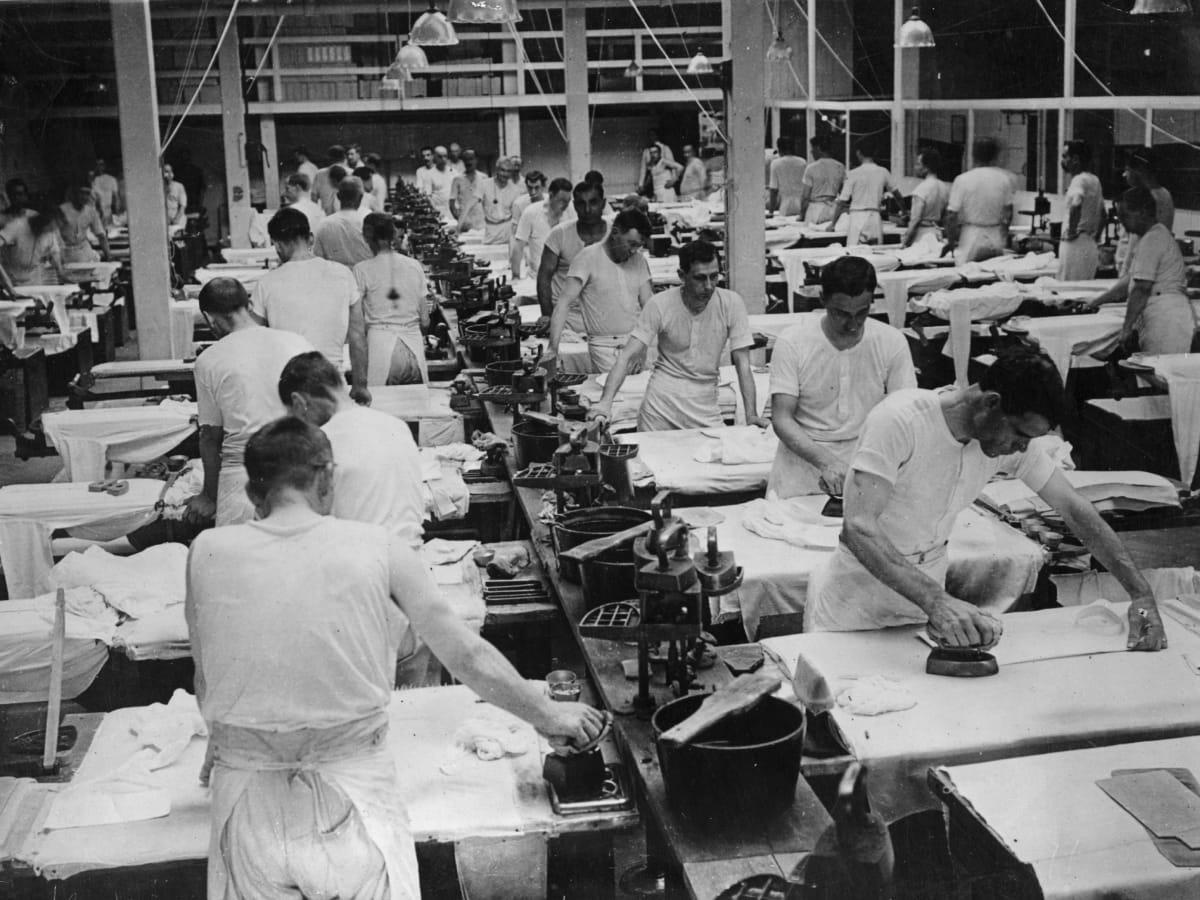
Manufacturing Phoenix in Arizona is a company that offers a range products to the federal Government. It also provides products similar to the federal government for individuals and commercial customers. All production can be done in one location, with all resources located within a few feet of each others. For over 40 years, the company has offered employment opportunities for people with disabilities. It employs about 70 people in its manufacturing unit.
Honeywell Aerospace
Honeywell Aerospace in Phoenix is an aerospace company that designs innovative transportation solutions. Its products, services, and safety features improve flight safety, increase fuel efficiency, and enhance runway traffic. Its products can be found in nearly all commercial airliner. Honeywell Aerospace has also contributed technology to the production of 2001: A Space Odyssey. Honeywell Aerospace also manufactures systems to support the International Space Station.

Honeywell opened a reactive metal alloy additive manufacturing facility in Phoenix in 2016. The facility converted an existing flame spray facility into a production line for parts made from titanium and aluminum alloys. Honeywell hopes to produce Inconel 718 components in the facility by 2017. The facility was built by Honeywell, which has invested more than $25,000,000.
Raytheon Technologies Corp.
Raytheon Technologies Corp. (multinational aerospace and defense conglomerate) is headquartered at Arlington, Virginia. This company is one of largest producers of military equipment around the globe. It manufactures aircraft, missiles and rockets. Raytheon is not only a major aerospace and defense producer, but also develops advanced technologies that can be used commercially.
Raytheon's history is long in the aerospace, defense and military sectors. The company's aerial navigation systems division, for example, accounts for 27.4% of the company's net sales. It also produces electrical and mechanical systems for aircraft.
Benchmark Electronics
Benchmark Electronics, an Arizona-based contract manufacturing company for electronics, is headquartered in Tempe. With more than 13,000 employees around the globe, the Phoenix-based ODM ranks among the top in the world. The company operates offices in Tempe Marketplace, Scottsdale, as well as Tempe Marketplace. Gayla Delly was recently promoted to CEO.

The Phoenix manufacturing facility offers vertically integrated engineering and manufacturing services. Its capabilities include embedded electronics design and microwave and RF component manufacturing. The company also offers aftermarket solutions. It has a broad range of customers in the commercial, industrial and defense markets.
FAQ
Is it necessary to be familiar with Manufacturing Processes before we learn about Logistics.
No. No. However, knowing about manufacturing processes will definitely give you a better understanding of how logistics works.
What are the 4 types manufacturing?
Manufacturing is the process of transforming raw materials into useful products using machines and processes. It involves many different activities such as designing, building, testing, packaging, shipping, selling, servicing, etc.
What skills are required to be a production manager?
You must be flexible and organized to become a productive production planner. Effective communication with clients and colleagues is essential.
What are the responsibilities of a logistic manager?
Logistics managers make sure all goods are delivered on schedule and without damage. This is done using his/her knowledge of the company's products. He/she should also ensure enough stock is available to meet demand.
How can efficiency in manufacturing be improved?
First, determine which factors have the greatest impact on production time. The next step is to identify the most important factors that affect production time. If you aren't sure where to begin, think about the factors that have the greatest impact on production time. Once you've identified them, try to find solutions for each of those factors.
Why automate your factory?
Modern warehousing is becoming more automated. E-commerce has brought increased demand for more efficient and quicker delivery times.
Warehouses need to adapt quickly to meet changing needs. To do so, they must invest heavily in technology. Automating warehouses has many benefits. Here are some benefits of investing in automation
-
Increases throughput/productivity
-
Reduces errors
-
Improves accuracy
-
Safety is boosted
-
Eliminates bottlenecks
-
Companies can scale up more easily
-
This makes workers more productive
-
Provides visibility into everything that happens in the warehouse
-
Enhances customer experience
-
Improves employee satisfaction
-
Minimizes downtime and increases uptime
-
High quality products delivered on-time
-
Removing human error
-
It ensures compliance with regulations
What is the best way to learn about manufacturing?
Experience is the best way for you to learn about manufacturing. If that is not possible, you could always read books or view educational videos.
Statistics
- (2:04) MTO is a production technique wherein products are customized according to customer specifications, and production only starts after an order is received. (oracle.com)
- In the United States, for example, manufacturing makes up 15% of the economic output. (twi-global.com)
- You can multiply the result by 100 to get the total percent of monthly overhead. (investopedia.com)
- [54][55] These are the top 50 countries by the total value of manufacturing output in US dollars for its noted year according to World Bank.[56] (en.wikipedia.org)
- According to a Statista study, U.S. businesses spent $1.63 trillion on logistics in 2019, moving goods from origin to end user through various supply chain network segments. (netsuite.com)
External Links
How To
How to Use Lean Manufacturing in the Production of Goods
Lean manufacturing is a management style that aims to increase efficiency and reduce waste through continuous improvement. It was developed by Taiichi Okono in Japan, during the 1970s & 1980s. TPS founder Kanji Takoda awarded him the Toyota Production System Award (TPS). Michael L. Watkins published the "The Machine That Changed the World", the first book about lean manufacturing. It was published in 1990.
Lean manufacturing is often defined as a set of principles used to improve the quality, speed, and cost of products and services. It emphasizes eliminating waste and defects throughout the value stream. Lean manufacturing can be described as just-in–time (JIT), total productive maintenance, zero defect (TPM), or even 5S. Lean manufacturing emphasizes reducing non-value-added activities like inspection, rework and waiting.
Lean manufacturing is a way for companies to achieve their goals faster, improve product quality, and lower costs. Lean manufacturing is considered one of the most effective ways to manage the entire value chain, including suppliers, customers, distributors, retailers, and employees. Lean manufacturing is widely practiced in many industries around the world. Toyota's philosophy is the foundation of its success in automotives, electronics and appliances, healthcare, chemical engineers, aerospace, paper and food, among other industries.
Five basic principles of Lean Manufacturing are included in lean manufacturing
-
Define Value- Identify the added value your company brings to society. What makes you stand out from your competitors?
-
Reduce waste - Get rid of any activity that does not add value to the supply chain.
-
Create Flow - Make sure work runs smoothly without interruptions.
-
Standardize & simplify - Make processes consistent and repeatable.
-
Building Relationships – Establish personal relationships with both external and internal stakeholders.
Lean manufacturing isn’t new, but it has seen a renewed interest since 2008 due to the global financial crisis. Many businesses have adopted lean manufacturing techniques to help them become more competitive. Economists think that lean manufacturing is a crucial factor in economic recovery.
Lean manufacturing is becoming a popular practice in automotive. It has many advantages. These include improved customer satisfaction, reduced inventory levels, lower operating costs, increased productivity, and better overall safety.
It can be applied to any aspect of an organisation. Lean manufacturing is most useful in the production sector of an organisation because it ensures that each step in the value-chain is efficient and productive.
There are three main types of lean manufacturing:
-
Just-in-Time Manufacturing: Also known as "pull systems", this type of lean manufacturing uses just-in-time manufacturing (JIT). JIT is a process in which components can be assembled at the point they are needed, instead of being made ahead of time. This approach is designed to reduce lead times and increase the availability of components. It also reduces inventory.
-
Zero Defects Manufacturing (ZDM),: ZDM is a system that ensures no defective units are left the manufacturing facility. If a part needs to be fixed during the assembly line, it should be repaired rather than scrapped. This also applies to finished products that need minor repairs before being shipped.
-
Continuous Improvement: Continuous Improvement aims to improve efficiency by continually identifying problems and making adjustments to eliminate or minimize waste. Continuous Improvement (CI) involves continuous improvement in processes, people, tools, and infrastructure.